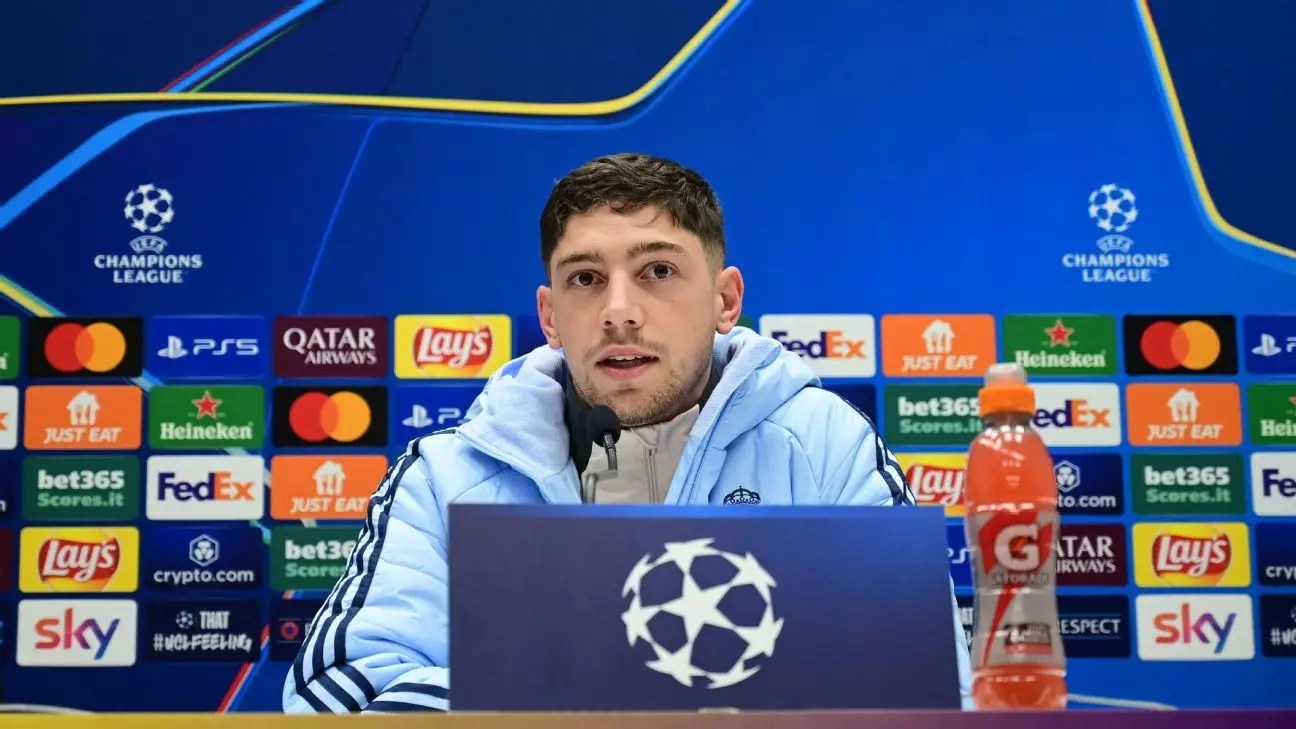Real Madrid, a club synonymous with success in European football, is currently facing an unexpected dip in form. Federico Valverde’s recent comments highlight the frustration felt by the team as they grapple with their underperformance in the Champions League. Sitting in an uncharacteristic 24th place in the league phase standings, Madrid’s current predicament starkly contrasts with the expectations that surround one of the most storied clubs in football history. The three recent defeats against Lille, AC Milan, and Liverpool have cast a shadow on their campaign, leaving them with only six points from five fixtures as they prepare to take on Atalanta. For a club used to contending at the very highest level, this situation is indeed uncharted territory.
The Impact of Injuries on Team Dynamics
A significant layer to this narrative is the toll injuries have taken on the squad. The absence of crucial players, such as defenders Éder Militão and Dani Carvajal, has undoubtedly hampered Real Madrid’s stability. Carlo Ancelotti, the team’s coach, is tasked with navigating these challenges while trying to assemble a lineup capable of turning their fortunes around. The recent fitness tests for Vinícius Júnior and Rodrygo underline the precarious nature of squad selection, as injuries have forced Real Madrid to continuously adapt. In football, especially at a competitive level, maintaining momentum is crucial. However, the constant reshuffling due to injuries can disrupt chemistry and cohesion within the team.
Despite the gloom surrounding their Champions League campaign, there have been bright spots. Jude Bellingham, for instance, has emerged as a key player recently, scoring five goals in his last five LaLiga matches. His revival demonstrates the potential for individual brilliance to lift a team amid hardship. Ancelotti noted that Bellingham’s contributions extend beyond goals; his involvement in both offensive and defensive duties embodies the spirit needed to redefine the team’s fortunes. The contrasting performances of Bellingham in terms of scoring before and after the initial months of the season reflect not only his personal development but also the evolution of team dynamics under pressure.
Looking ahead, Ancelotti’s comments about young talents like Endrick and Arda Güler not being loaned out in January signify the club’s intent to invest in its future. The emphasis on patience with these players suggests a willingness to adapt and build for long-term success rather than seek immediate fixes. This approach could potentially transform Real Madrid into a more versatile and resilient team, capable of weathering the storms of European competition.
The current struggles facing Real Madrid are a stark reminder of the volatility present in football. As they prepare for crucial matches ahead, the team must embrace resilience, adaptability, and a forward-thinking mentality. The journey may be difficult, but with a blend of experienced leaders and emerging talents, there is a road back to greatness. Madrid’s legacy is built on overcoming adversity, and this chapter may just shape an even brighter future.


Leave a Reply